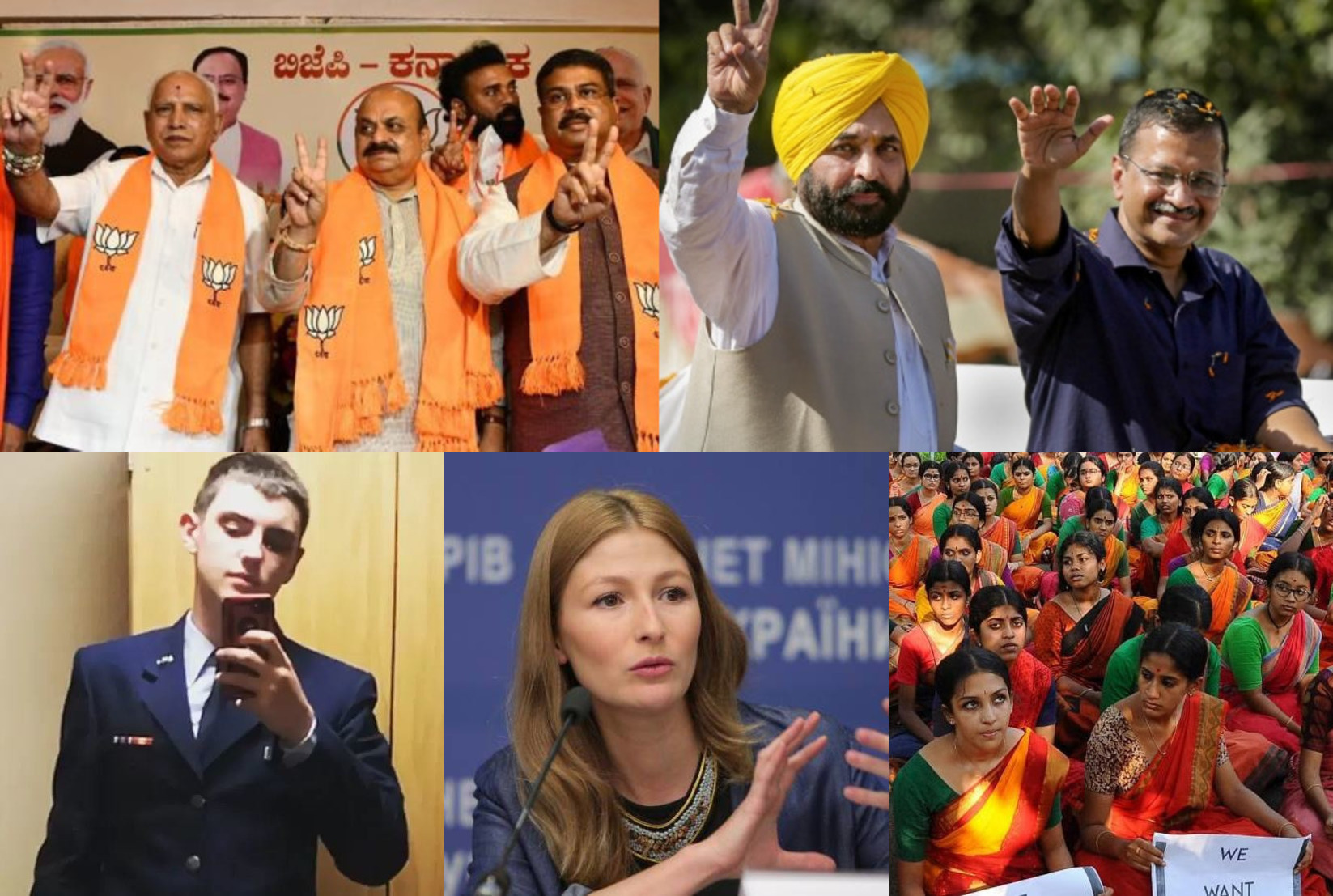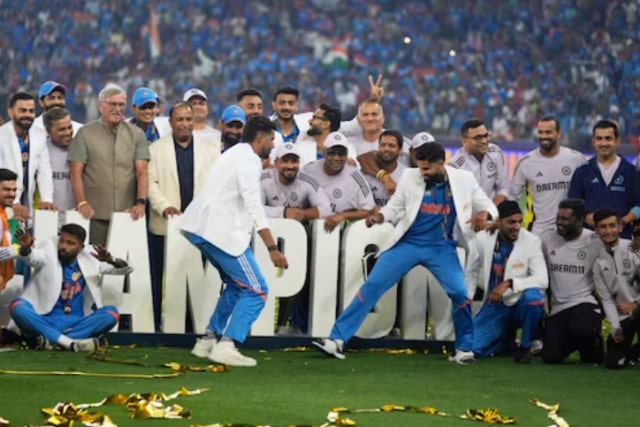
BJP’s Fight to Win Karnataka Could Go Down to The Wire
BJP’s fight to win Karnataka could go down to the wire
The Bharatiya Janata Party’s (BJP) surge in Indian states is impressive. Of the 28 states, the BJP and its political allies, rule in 12 of India’s 28 states and two union territories. Besides, a BJP-dominated alliance has been in power at the Centre since 2014 with Prime Minister Narendra Modi at the helm of it for the past nine years. The BJP’s sway across India’s states has been a strong trend. It has largely decimated its main rival, the Congress Party, and in many states, it has defeated prominent regional parties.
However, the BJP’s clout has historically been the strongest in the northern states and the party has often been identified as being most influential in a vast swathe of India that is commonly called the “Hindi belt”. In recent years, particularly after coming to power at the Centre, the BJP has grown in popularity in other regions. In the north-eastern part of India, for example, in Assam, Manipur, Tripura, and Arunachal Pradesh, it is a BJP government that is in power; and in Nagaland and Meghalaya, the BJP is part of the ruling alliance.
It is a somewhat different story in southern India, though. In Andhra Pradesh, Tamil Nadu, and Kerala, the BJP has been largely unsuccessful in its bid to wrest power from its rival parties, including strong regional contenders. Partly this is because of the north-south divide that exists in India across attributes such as the economy, culture, and language differences.
Except for Karnataka. In that state, the BJP brand of Hindutva has found significant favour. In fact, the incumbent government is a BJP-led one, albeit because of the support it gets from the Janata Dal (Secular), a regional party run by the family of the former prime minister H.D. Devegowda. In the 2018 elections, the BJP won 104 of the 224 seats in the state’s assembly and first sat in the Opposition but later got the JD(S)’s support to form the government.
So even in Karnataka, it hasn’t been a smooth run for the BJP. Trends and ground reports indicate that it won’t be so in the coming elections as well. In some parts of Karnataka, notably in the Mysore district and in the coastal areas of the state, Modi and his party enjoy popularity. Still, the fight in Karnataka will be a three-cornered one: between the BJP, the Congress, and the JD(S). The voting pattern in the state is also likely to be determined on the basis of the two main caste groups: the Vokkaligas and the Lingayats. Interestingly, the majority of the candidates that the BJP has announced are from either of those two communities. BJP is hoping to chip into the JD(S) and the Congress’s voting blocks by wooing the two communities.
As the three parties up the ante in their campaigning, the BJP and the JD(S) have an edge over the Congress, which has been in a continuing state of disarray at the national level and has been declining in popularity continuously as the results of recent elections have shown.
Yet, it is not easy to predict how the BJP will fare in the coming elections. If it does not manage to get a clear majority, it will likely have to lean on the support of other parties, notably the JD(S) again. For the BJP, Karnataka is an important state. If it manages a decisive victory it could be the beginning of a larger foray into the southern part of India, a region that it has not been able to make a dent in till now.
AAP becomes a “national party”
The rise of the Aam Aadmi Party (AAP) has been meteoric and impressive. It was formed in the winter of 2012, just10 years ago, emerging from a wave of anti-corruption protests helmed by the activist, Anna Hazare, who was later joined by other activists, including Arvind Kejriwal, who later founded AAP. His party first won the elections to the Delhi assembly, and more recently the elections in Punjab. Last week, in a significant step, the election commission declared that AAP was now recognised as a national party in India.
According to the law, a registered political party is recognised as being a national party if it fulfills any of three conditions: the party is able to win 2% of the seats in Lok Sabha; it polls at least 6% of the votes in a general election or an election to the legislative assembly of a state; or it gets recognised as a state party in at least four states.
With AAP’s recognition as a national party, India now has six national parties: the BJP, Congress, Bahujan Samaj Party, Communist Party of India (Marxist), the National People’s Party, and AAP. Significantly, the election commission withdrew the national status of three parties, Nationalist Congress Party (NCP), Trinamool Congress, and the Communist Party of India (CPI) because they no longer met the criteria.
What does the national status mean for AAP? It gives the party and its supporters a significant morale boost. For AAP and its leaders, who have ambitions of contesting elections in several other states in India, it gives considerable heft, if not materially, at least in terms of sentiment.
Pentagon leaks and what they mean
A large number of classified secret documents were discovered to be leaked from the Pentagon, the headquarters of the US Department of Defense last week. While a relatively junior, 21-year-old airman was held in connection with the leaks, the significance of the leak and their ramifications are of importance.
The leaks related to various issues but chiefly were in connection with Russia’s war against Ukraine. Here are some of them: First, as recently as in February, the US government seemed to be pessimistic about Kyiv’s capabilities in defending Ukraine against Russian attacks. The documents said the US’ assessment was that Ukraine was not equipped to counter any fresh offensives by Russia this Spring. They said Ukraine’s air defence systems and availability of missiles against Russian attacks could fall short of what was needed.
Second, the leaks suggested that the US had very deep insights into Russia’s military operations in the region. These related to Russia’s targets in Ukraine and also plans to offer bonuses to troops if they attacked and destroyed Nato tanks. They also detailed plans of Russian mercenary groups who could target their operations in other regions such as Haiti.
Third, the documents revealed details of 97 special force operatives from various countries including the UK, which were active in Ukraine. These special forces could be part of a concerted Nato counter-initiative in the region.
Fourth, the documents detail conversations between the United Nations secretary general Antonio Guterres and his deputy about a deal with Ukraine to export grains to ease a food crisis globally. The documents appeared to suggest that the UN chief might have seemed sympathetic to Russian interests and undermined efforts against Russia.
Other documents pointed to US efforts to get South Korea to supply weapons to Ukraine.South Korea has a policy of not providing weapons to warring nations.
Besides potentially souring relations between the US and Ukraine, the documents embarrassingly point to America’s scepticism about the UN secretary-general. They also reveal to Russia the extent of spying that the US is capable of and could lead to Russia adopting counter moves to prevent such information from leaking in the future. The leaks also show that the US could be spying on its allies such as South Korea. For the US, this is a setback to the trust and goodwill that its allies shared with the country
Ukraine woos India diplomatically
War-torn Ukraine has reached out to India seeking more support from the latter during the ongoing Russian offensive against the country. In an interview to an Indian broadcaster last week, Ukraine’s deputy foreign minister Emine Dzhaparova said her country wanted India to invite officials from Ukraine to G20 events and to have increased dialogue with the Ukraine government.
India is currently holding the presidency (it is a rotating assignment) of G20 and will hold a summit of the group in September. The G20 is a forum that plays an important role in shaping and strengthening global architecture and governance on all major international economic issues. India has not been a very vocal critic of Russia for its invasion of Ukraine. In fact, it has increased its imports of oil from Russia taking advantage of lower prices following sanctions of the Western bloc against Russia.
Ukraine’s move might be construed as a smart tactic to softly pressure India into playing a more active role in its support than has been the case thus far. The Ukraine move comes after the much-talked-about meeting between Chinese president Xi Jinping and Russia’s president Vladimir Putin recently, which has been interpreted as a further bonding between the two nations. India’s relations with China are fraught and while India has been maintaining a fine balance of not aligning itself with either Russia or the West, the time may have come to reassess its stance.
Premier arts institute hit by allegations of sexual harassment
Kalakshetra Foundation is a prestigious Chennai-headquartered arts and cultural academy dedicated to the preservation of traditional values in Indian art and crafts, especially in the field of Bharatanatyam dance and Gandharvaveda music. Last week the world-renowned haven of culture was in the news for the wrong reasons. For weeks, students have been posting online allegations of sexual harassment against staff members of the institute, which has been forced to sack three of its employees. The professor against whom the allegations have been made, Hari Padman, has been arrested by the police.
While investigations into the allegations are still on, the story began late last year when the first complaints started surfacing. Initially, the institute denied the charges and described them as false but with protests brewing over, the charges are now being investigated and action has been initiated. This hits the reputation and image of Kalakshetra hard.



